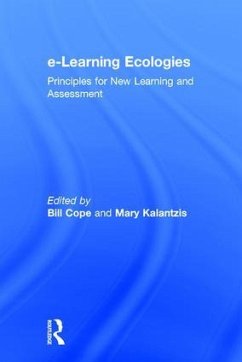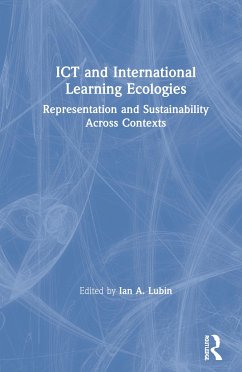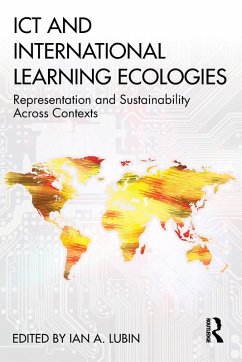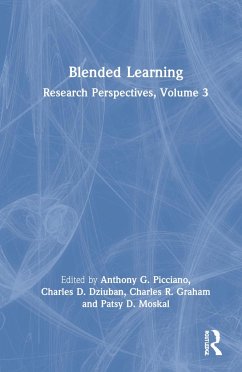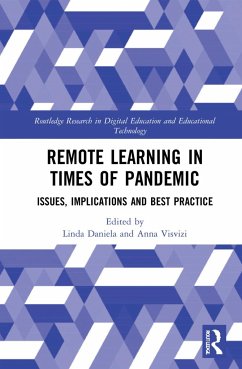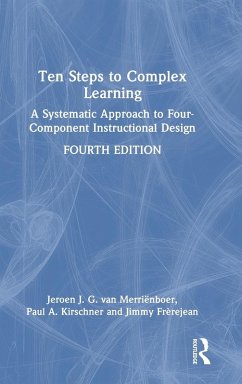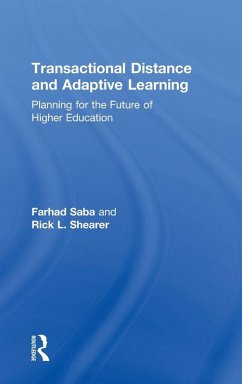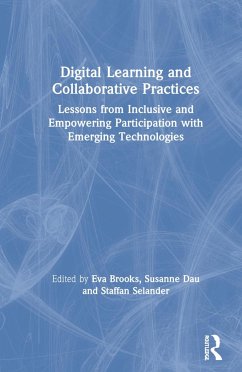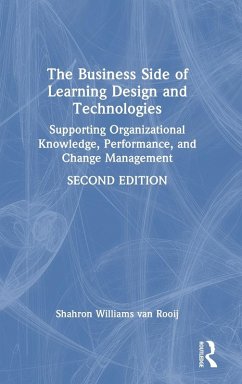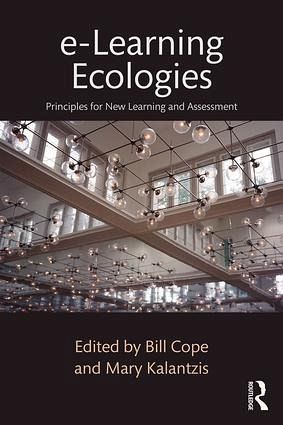
e-Learning Ecologies
Principles for New Learning and Assessment
Herausgeber: Cope, Bill; Kalantzis, Mary
Versandkostenfrei!
Versandfertig in 1-2 Wochen
56,99 €
inkl. MwSt.

PAYBACK Punkte
28 °P sammeln!
e-Learning Ecologies explores transformations in the patterns of pedagogy that accompany e-learning-the use of computing devices that mediate or supplement the relationships between learners and teachers-to present and assess learnable content, to provide spaces where students do their work, and to mediate peer-to-peer interactions. Written by the members of the "new learning" research group, this textbook suggests that e-learning ecologies may play a key part in shifting the systems of modern education, even as technology itself is pedagogically neutral. The chapters in this book aim to creat...
e-Learning Ecologies explores transformations in the patterns of pedagogy that accompany e-learning-the use of computing devices that mediate or supplement the relationships between learners and teachers-to present and assess learnable content, to provide spaces where students do their work, and to mediate peer-to-peer interactions. Written by the members of the "new learning" research group, this textbook suggests that e-learning ecologies may play a key part in shifting the systems of modern education, even as technology itself is pedagogically neutral. The chapters in this book aim to create an analytical framework with which to differentiate those aspects of educational technology that reproduce old pedagogical relations from those that are genuinely innovative and generative of new kinds of learning. Featuring case studies from elementary schools, colleges, and universities on the practicalities of new learning environments, e-Learning Ecologies elucidates the role of new technologies of knowledge representation and communication in bringing about change to educational institutions.





